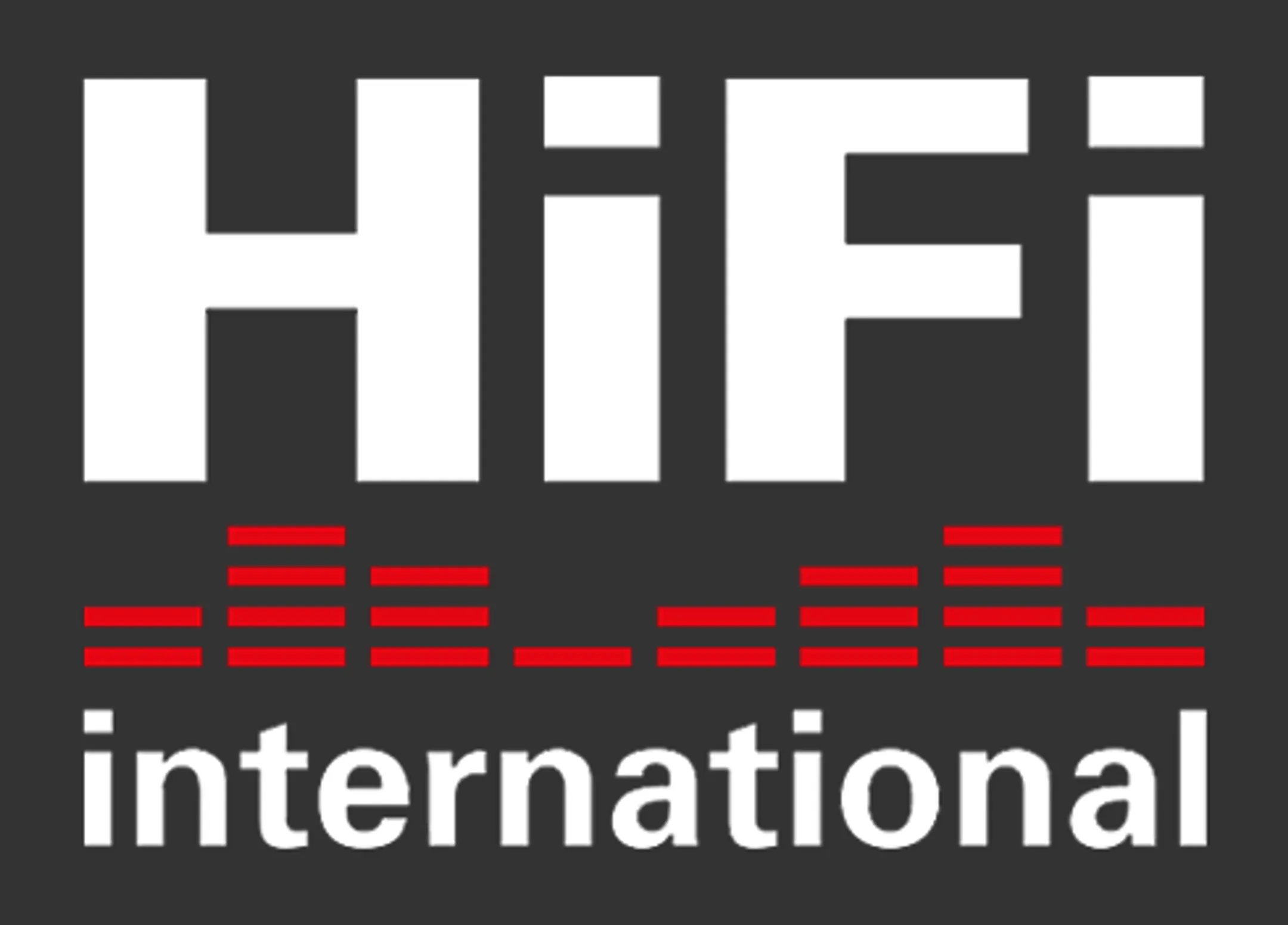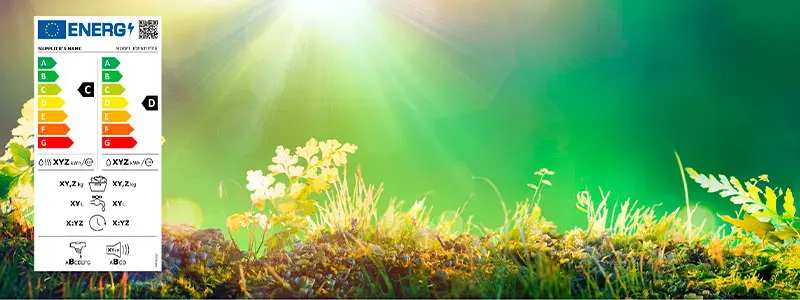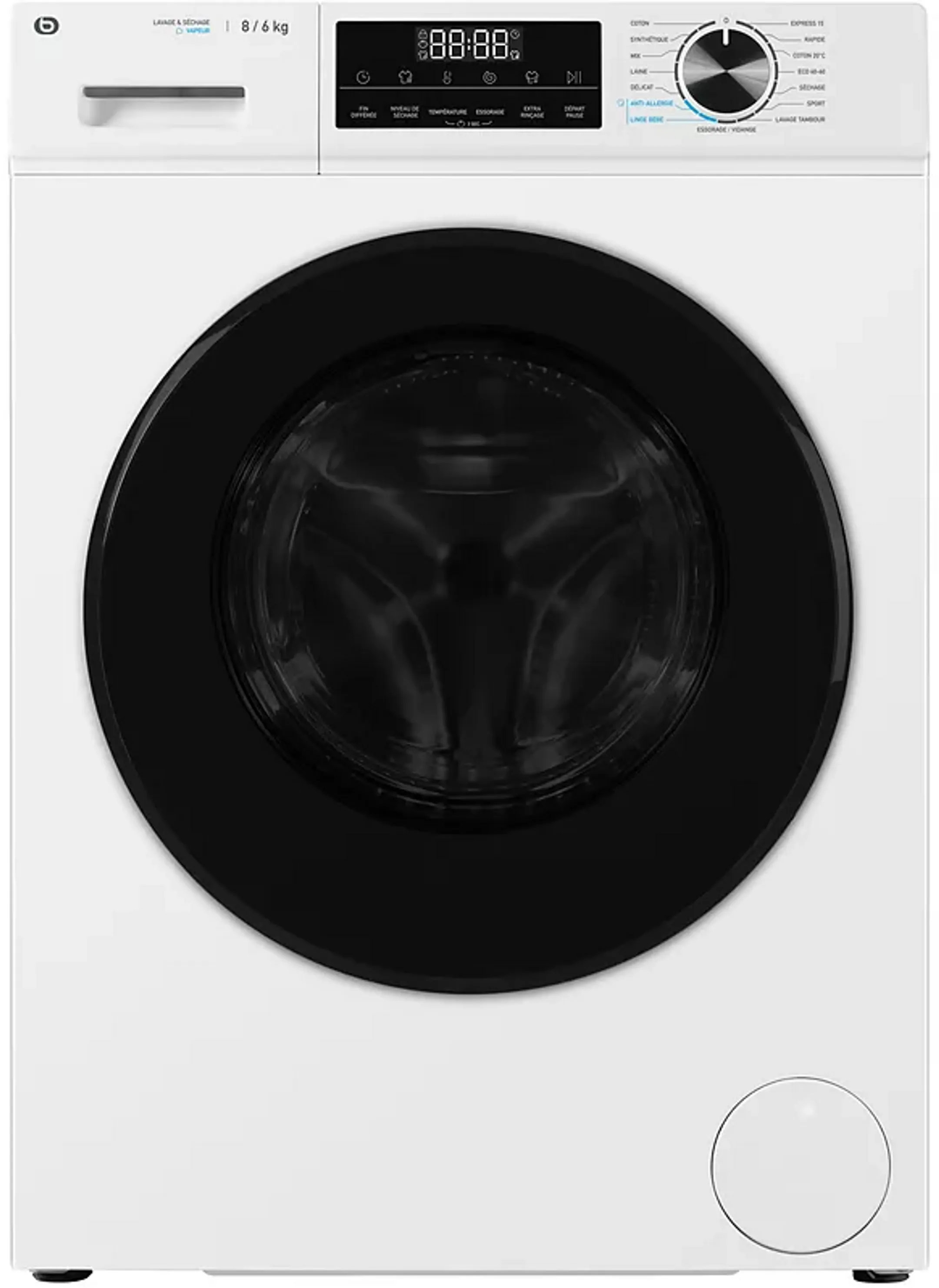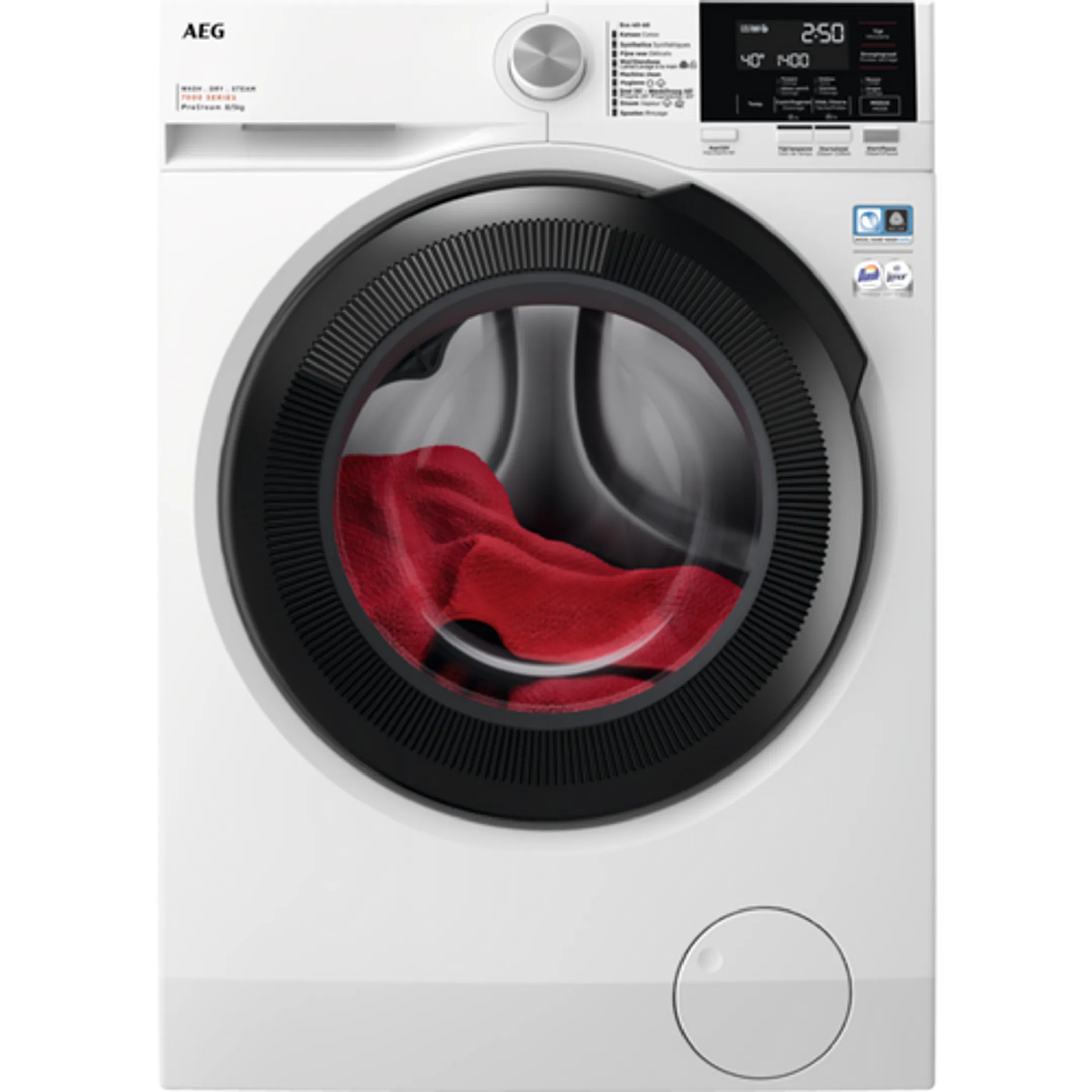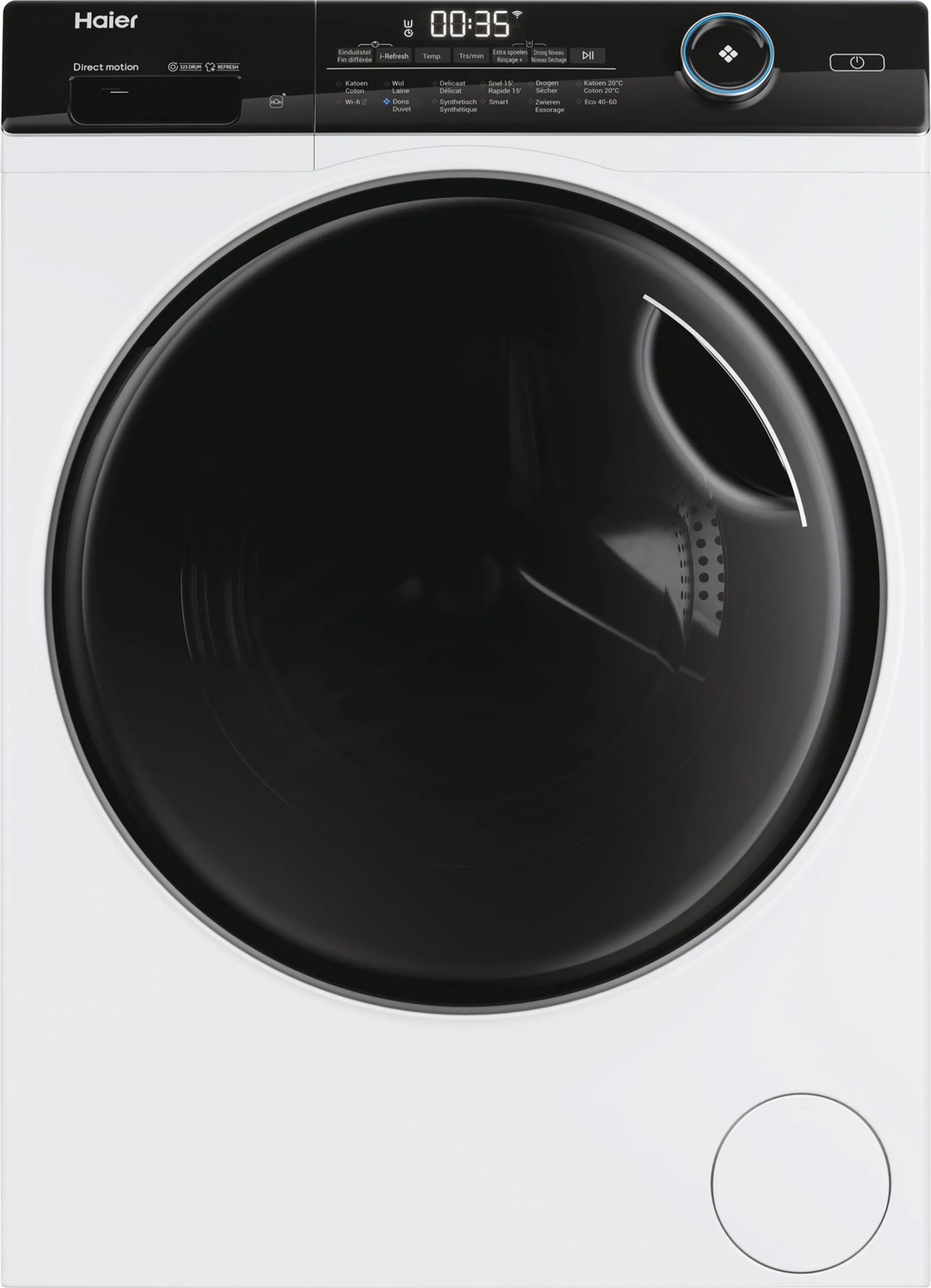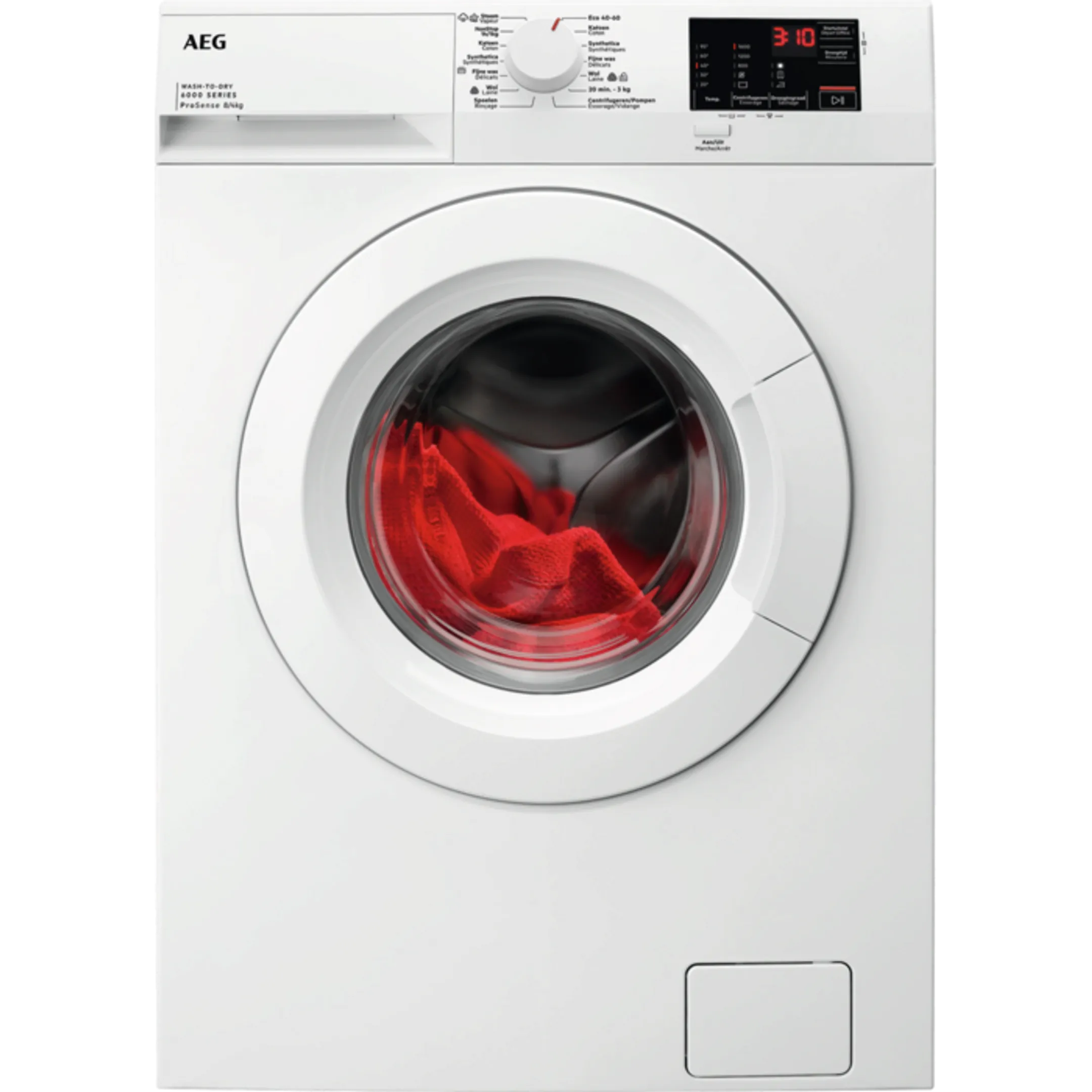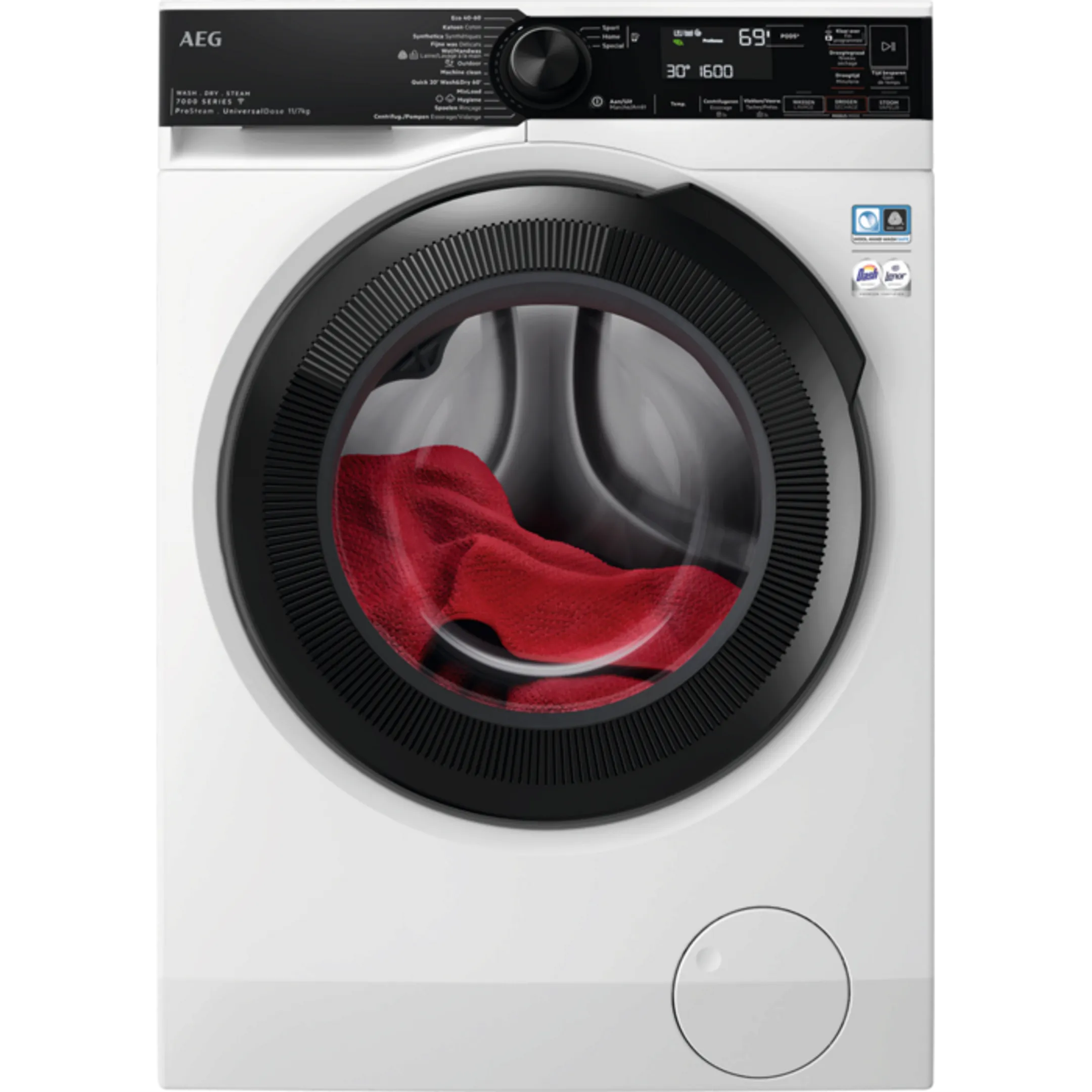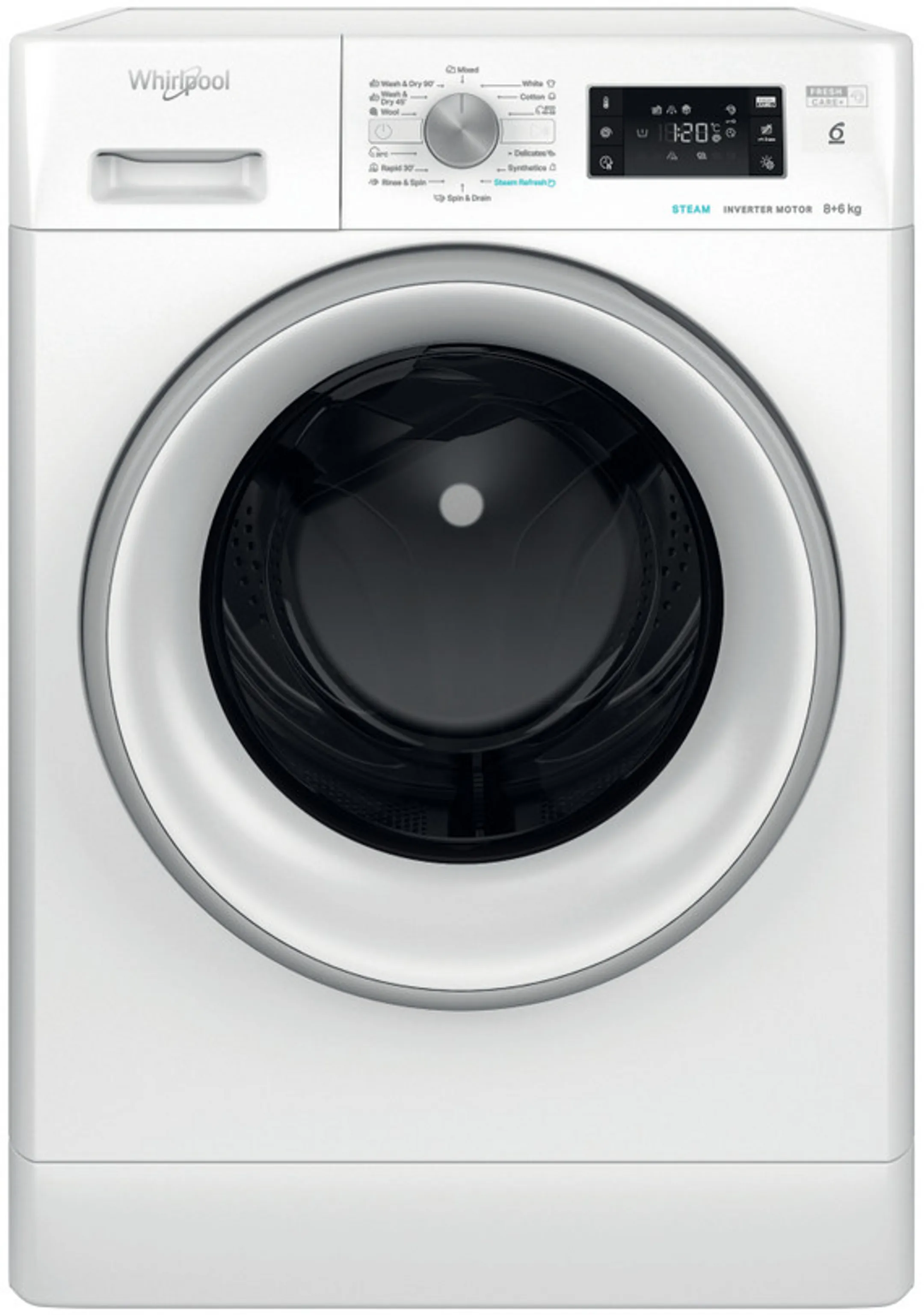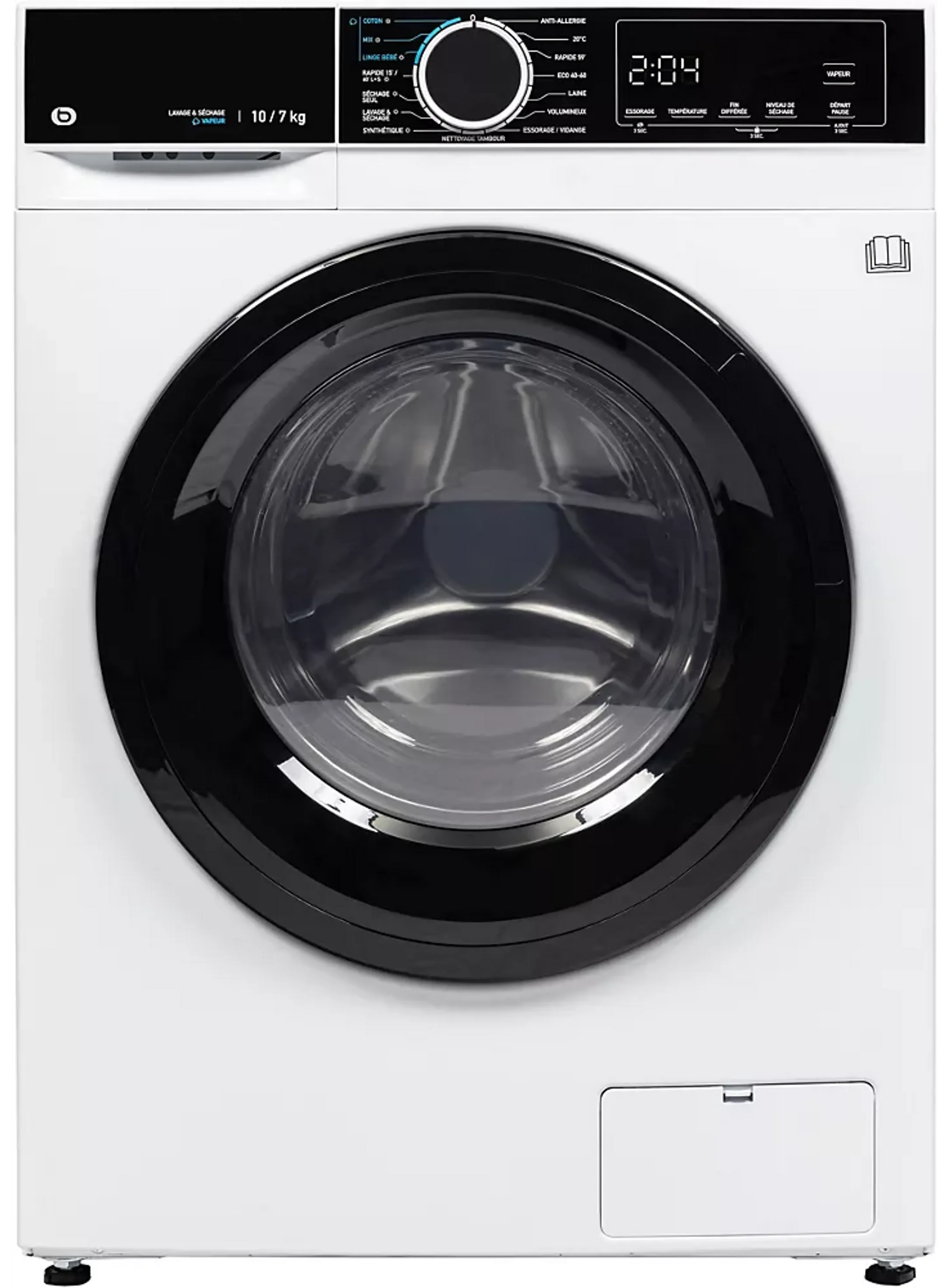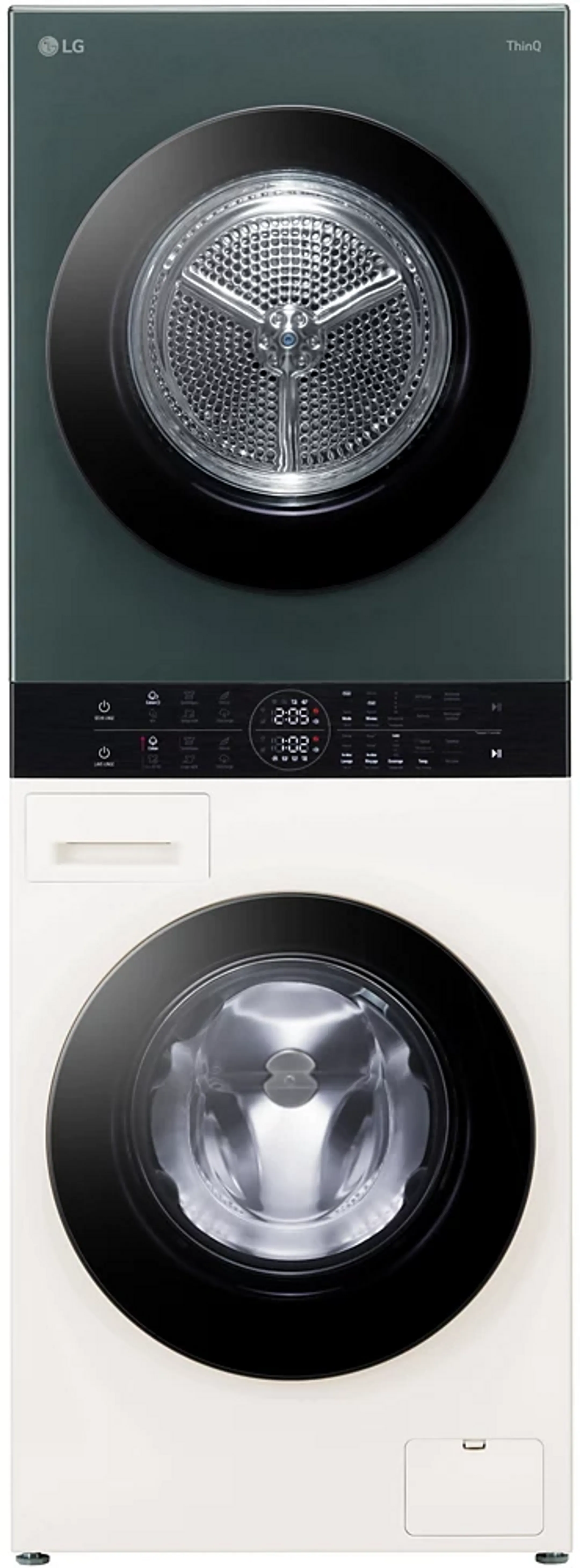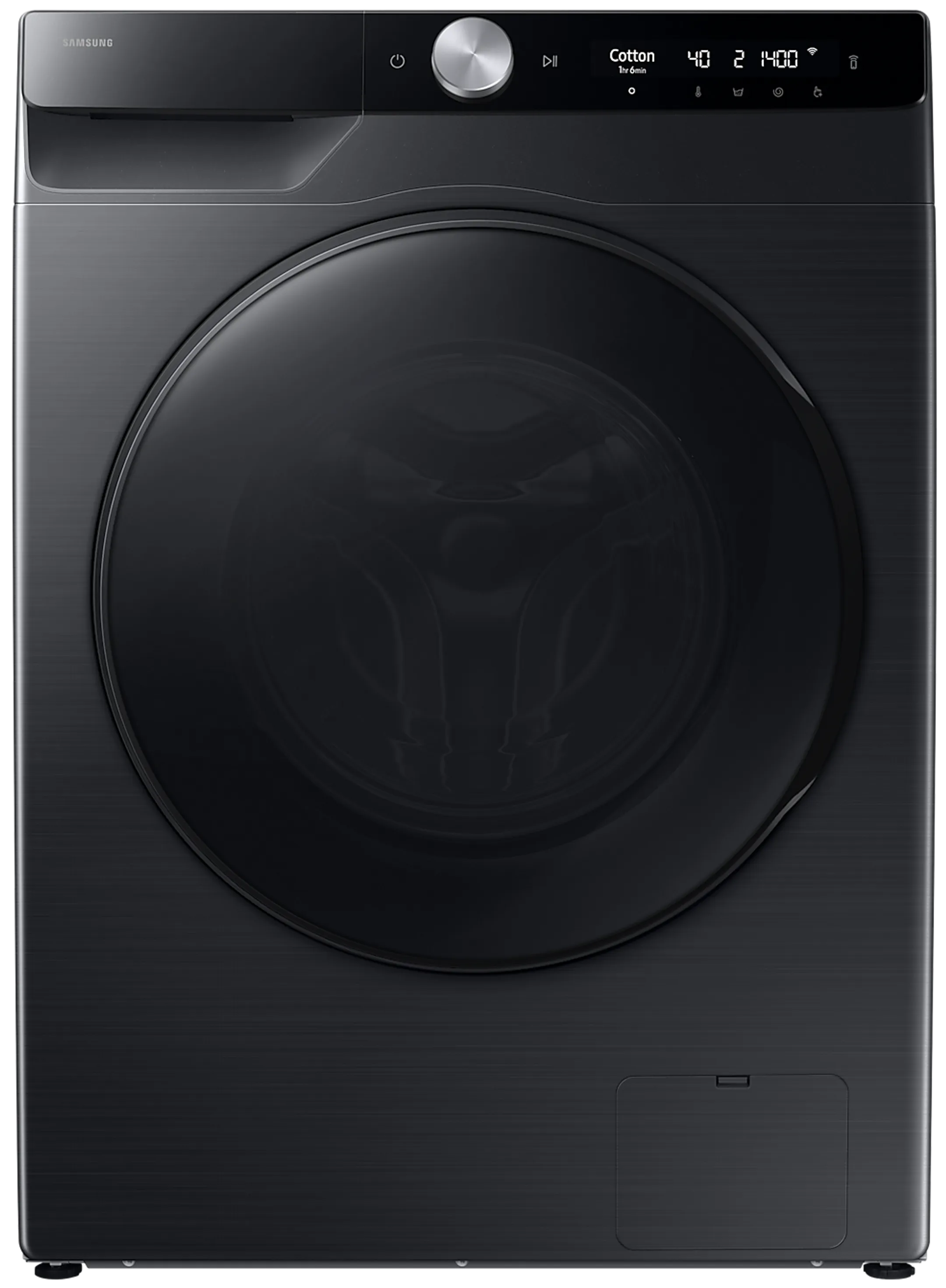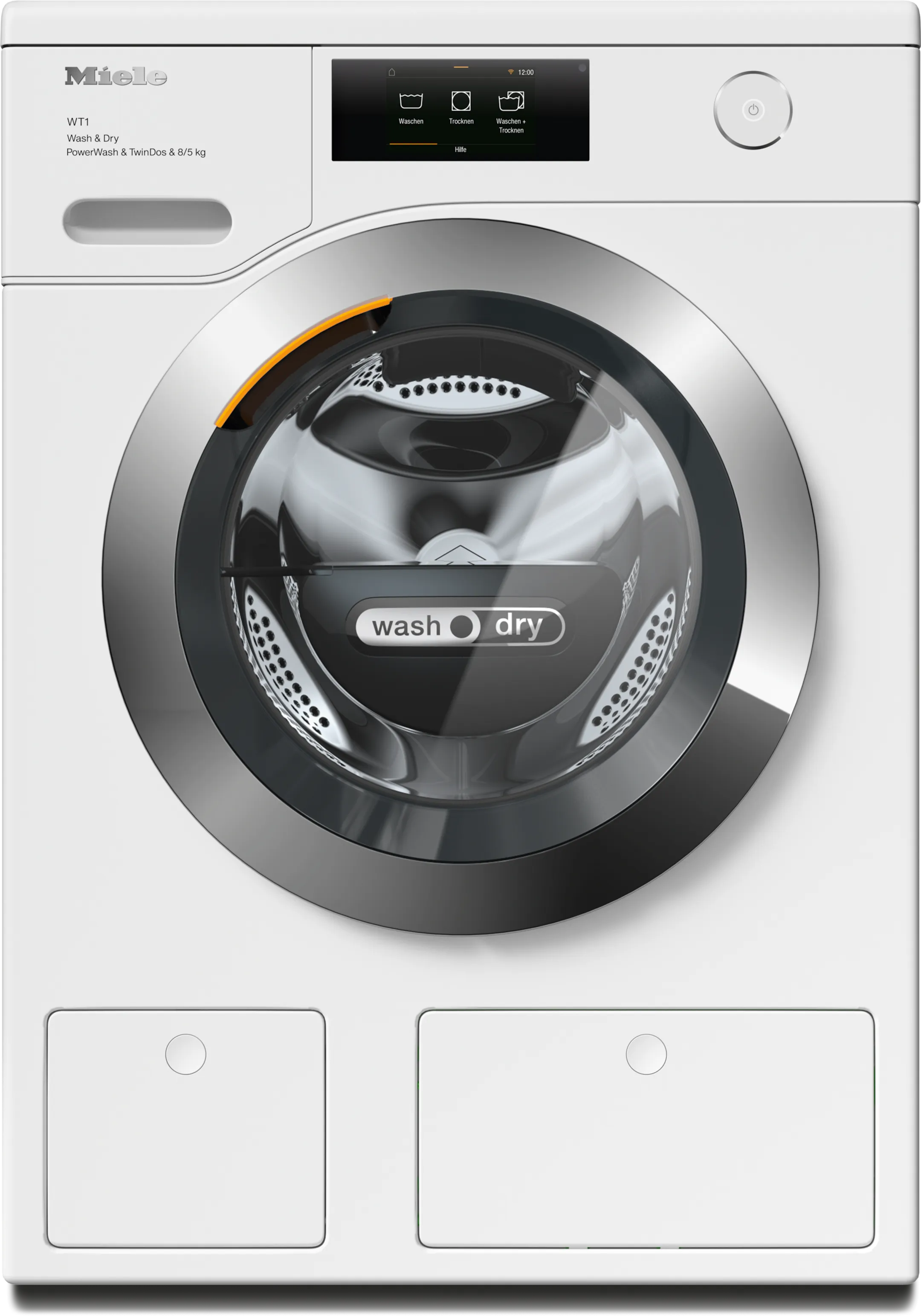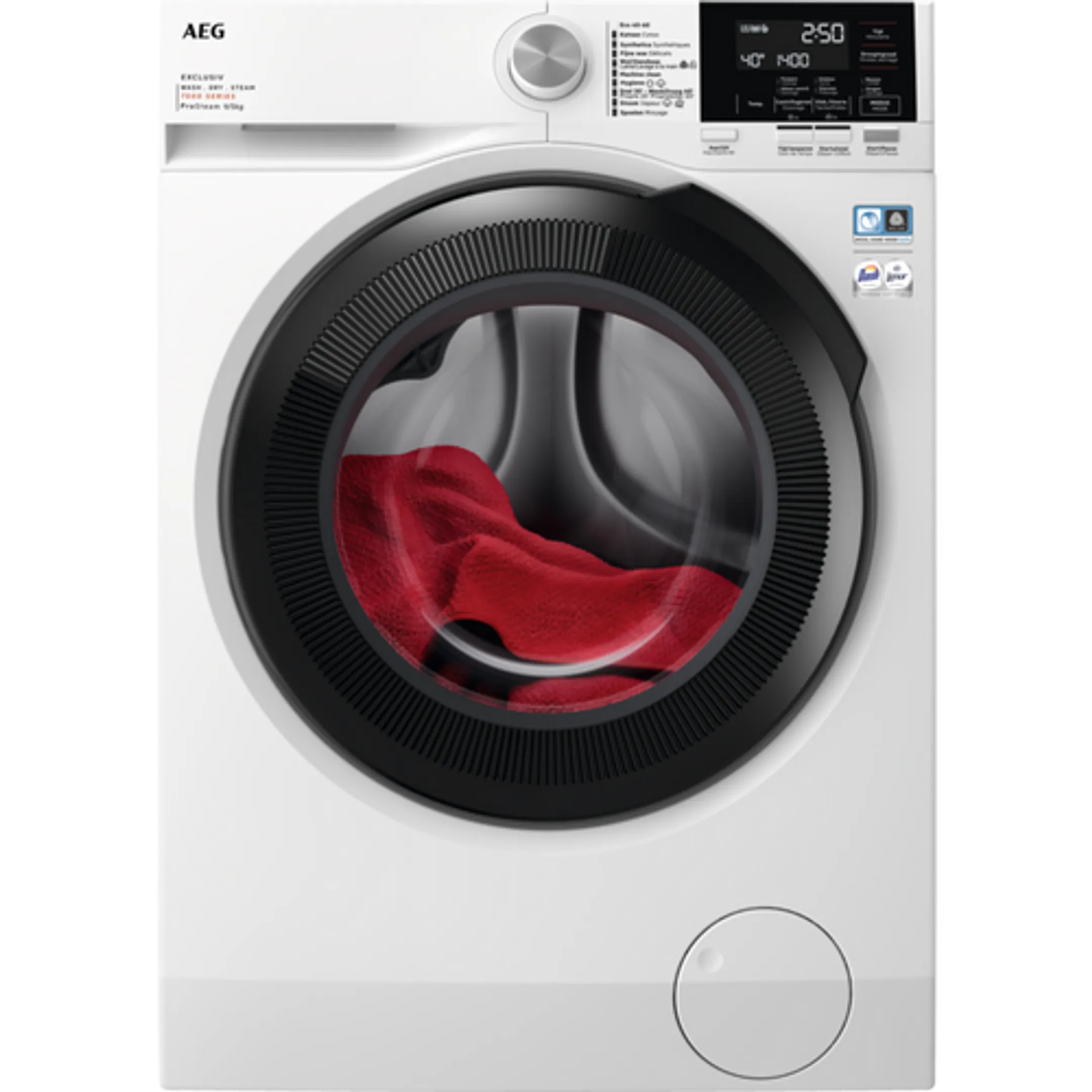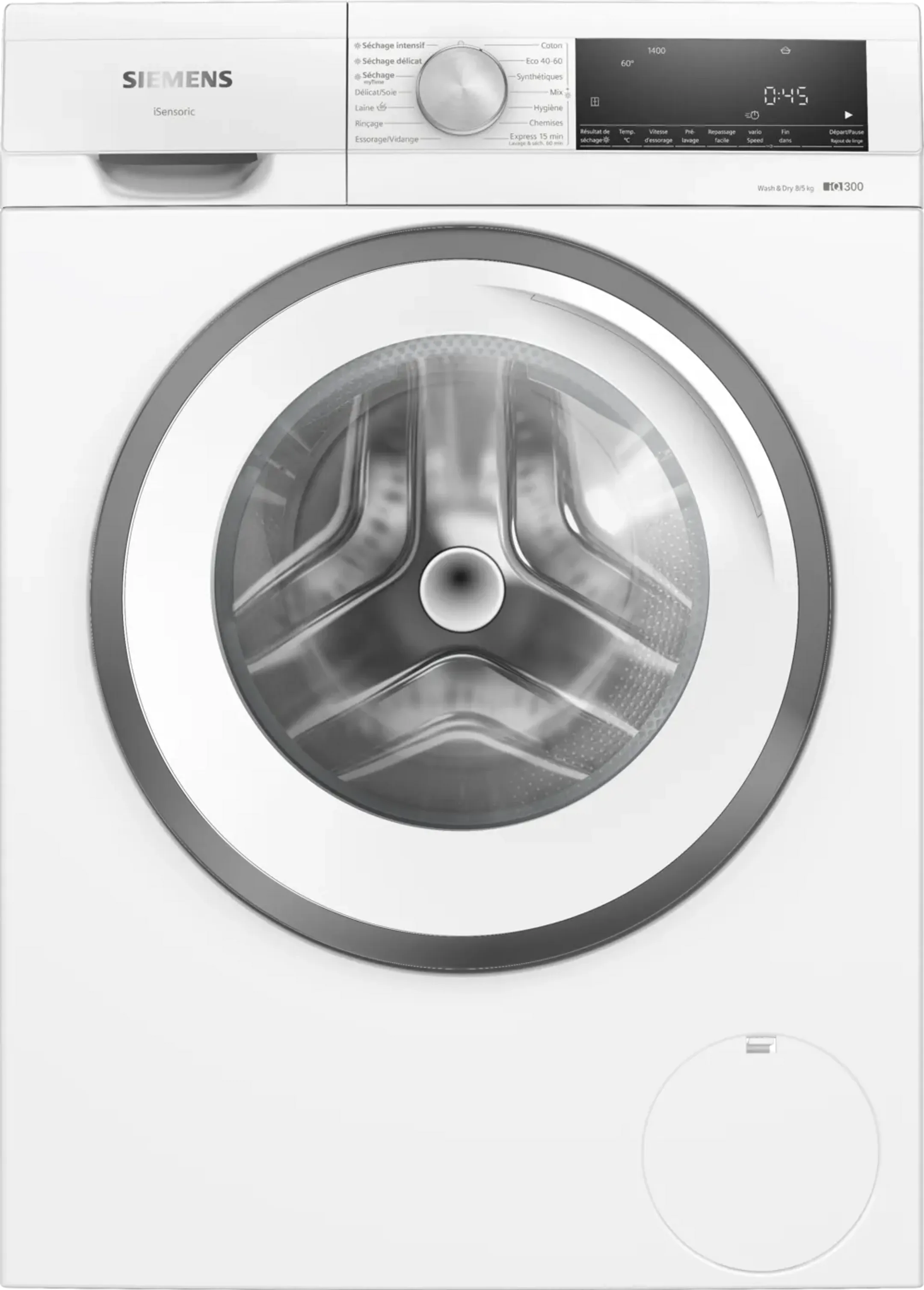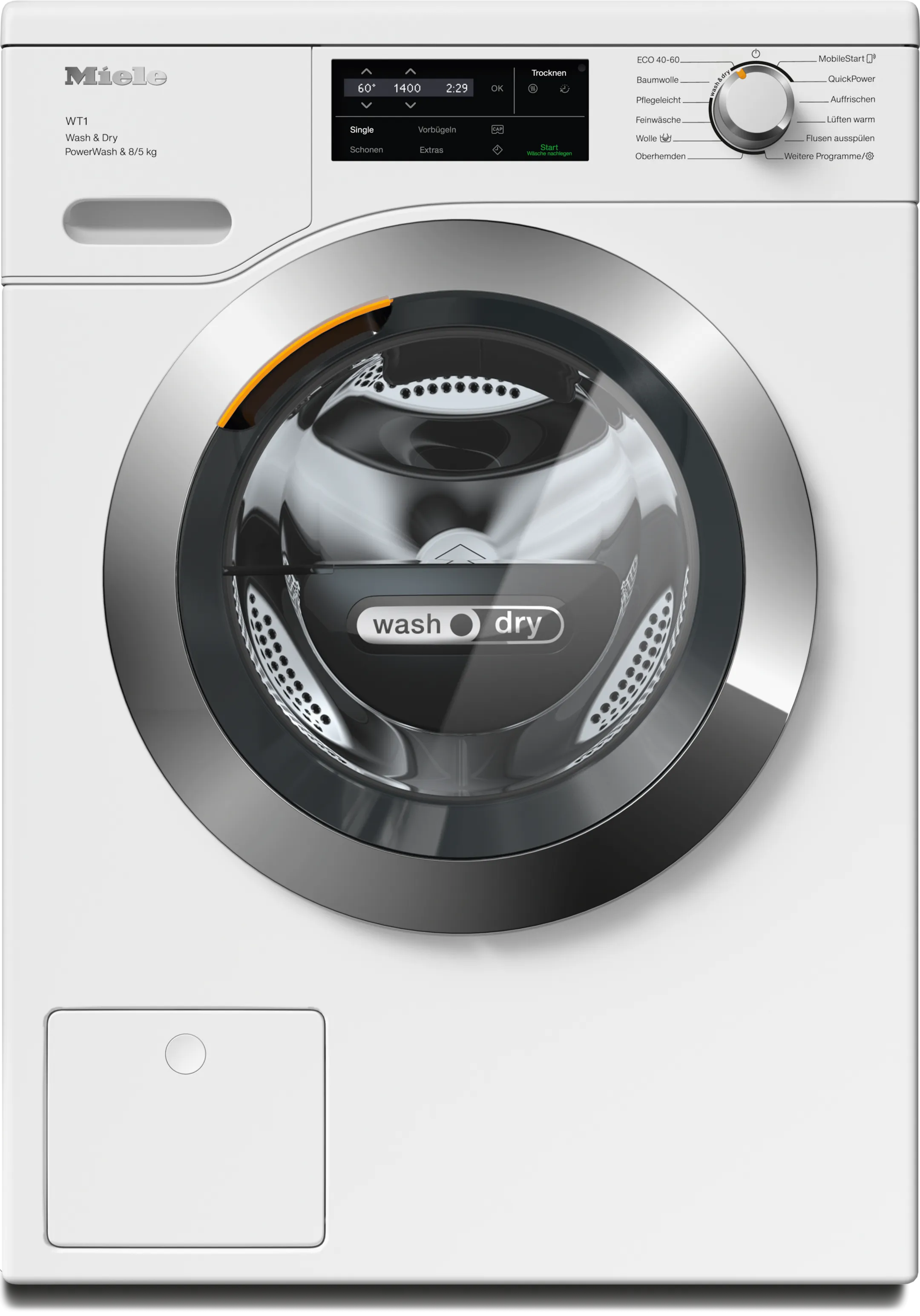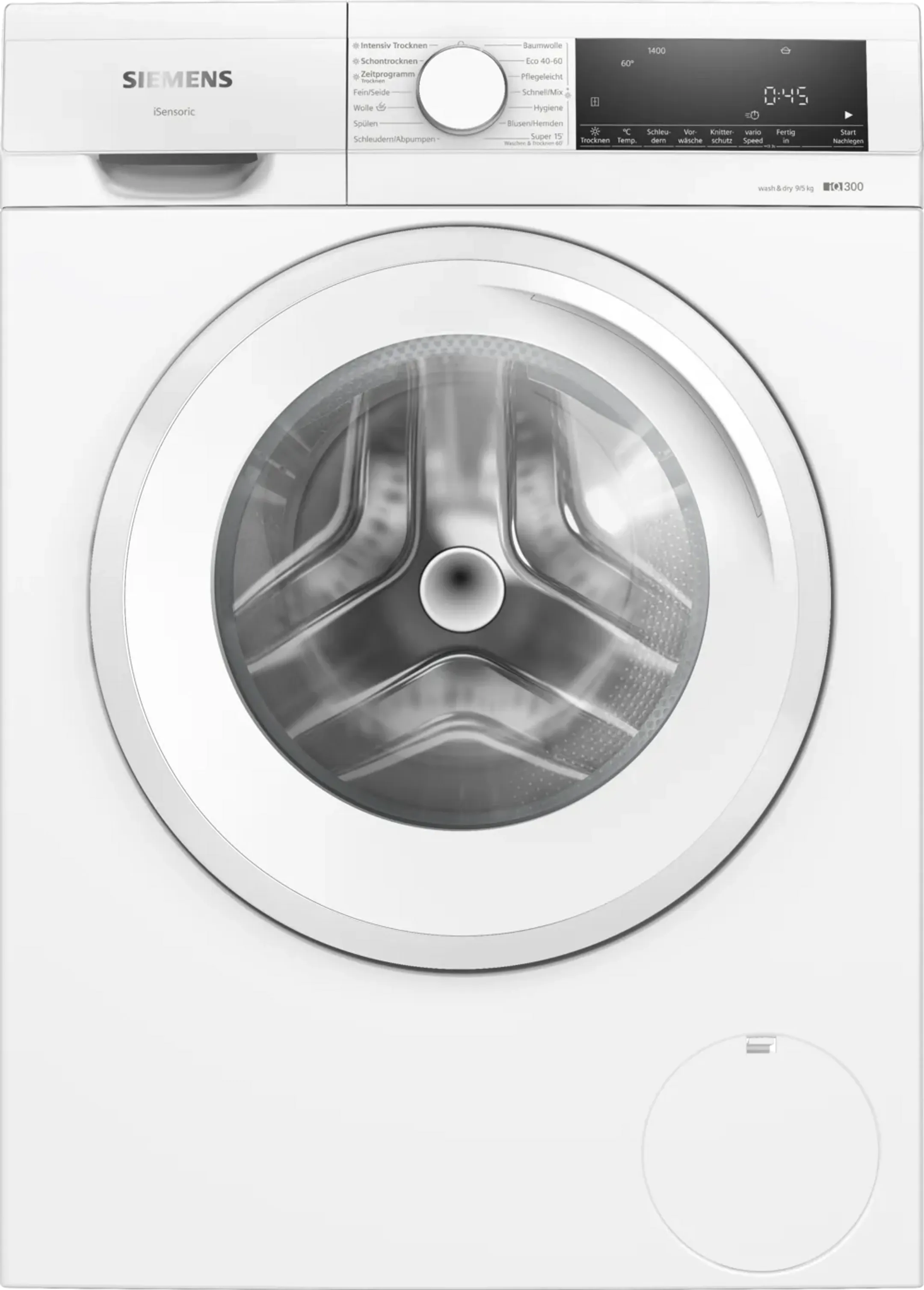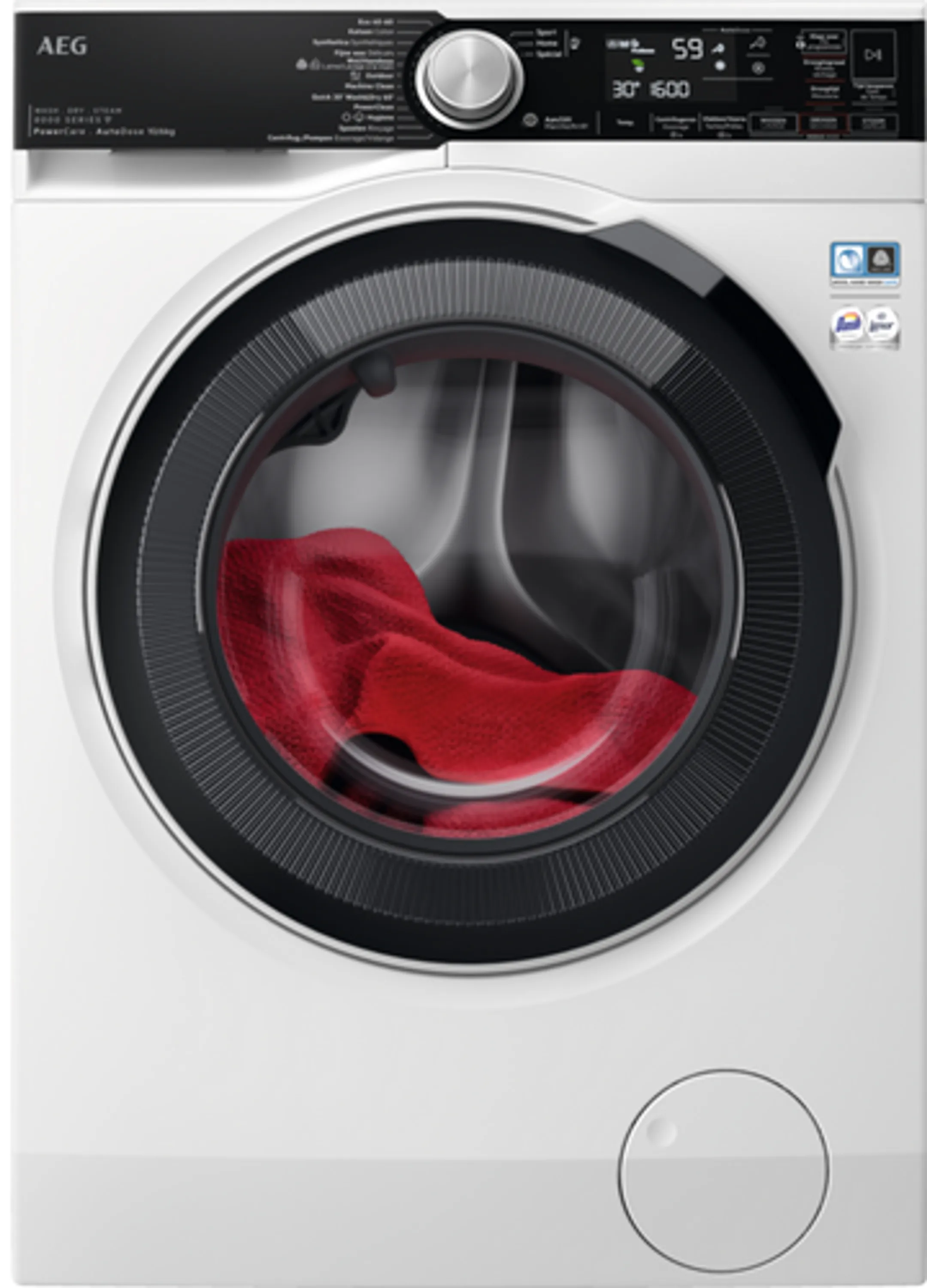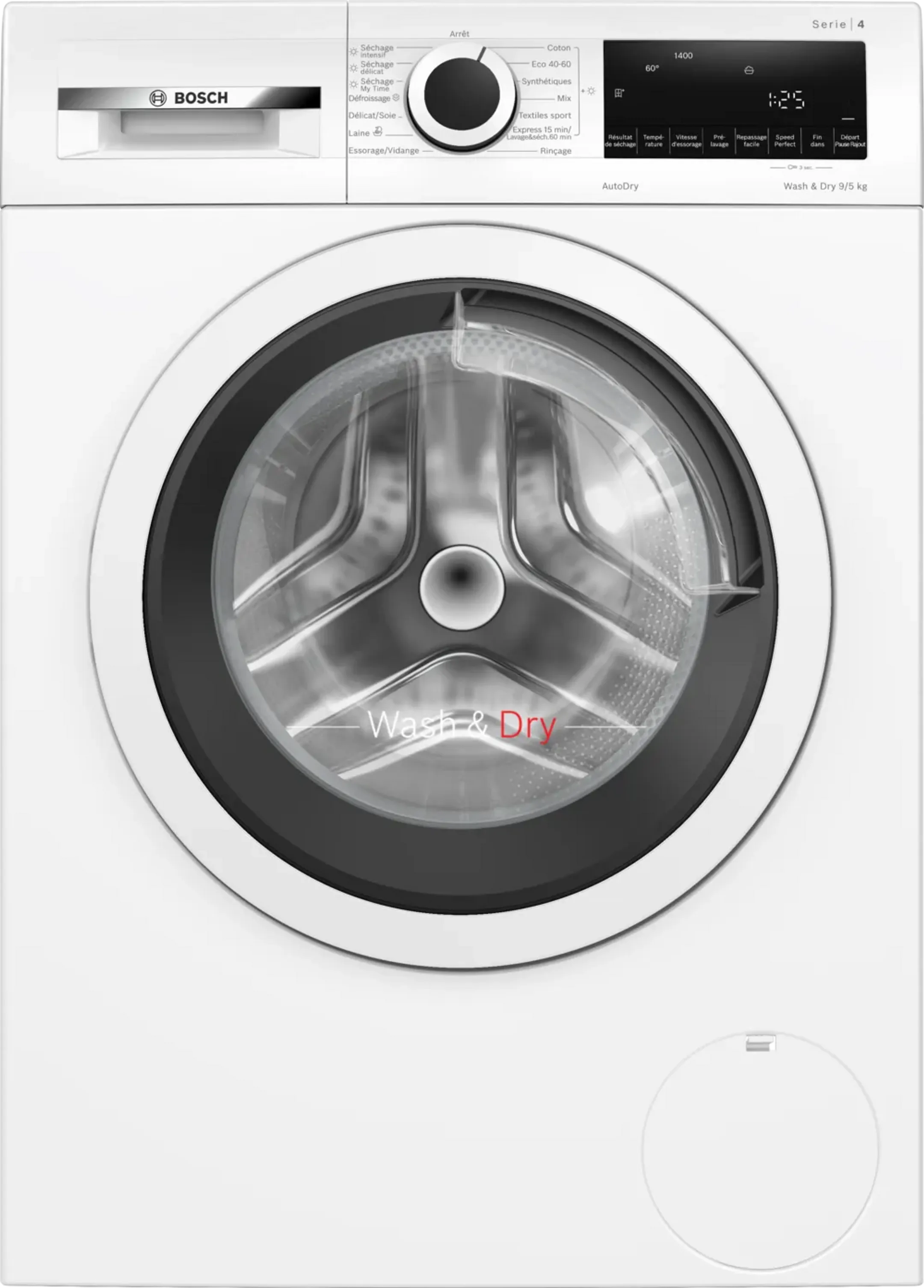The energy labels for washer-dryers
Washer-dryers have received a new energy label since March 1, 2021.
The classes are stricter, and the consumption measurement methods are more realistic for everyday conditions.
HIFI international explains the new energy labels to you.
New energy label for washer-dryers
Washer-dryers retain the A to G scale, but the criteria for obtaining a green label are stricter, and energy consumption is now based on only 100 cycles.
The distinction between a wash cycle and a wash-and-dry cycle is new. It has been introduced because the drying function is not always used. On the left, you will find the data for a cycle including both washing and drying. On the right, the data refers to a cycle where only washing is performed.
For washing and drying, the values relate to half-load and full-load cycles. For washing only, the values relate to quarter, half, and full loads.
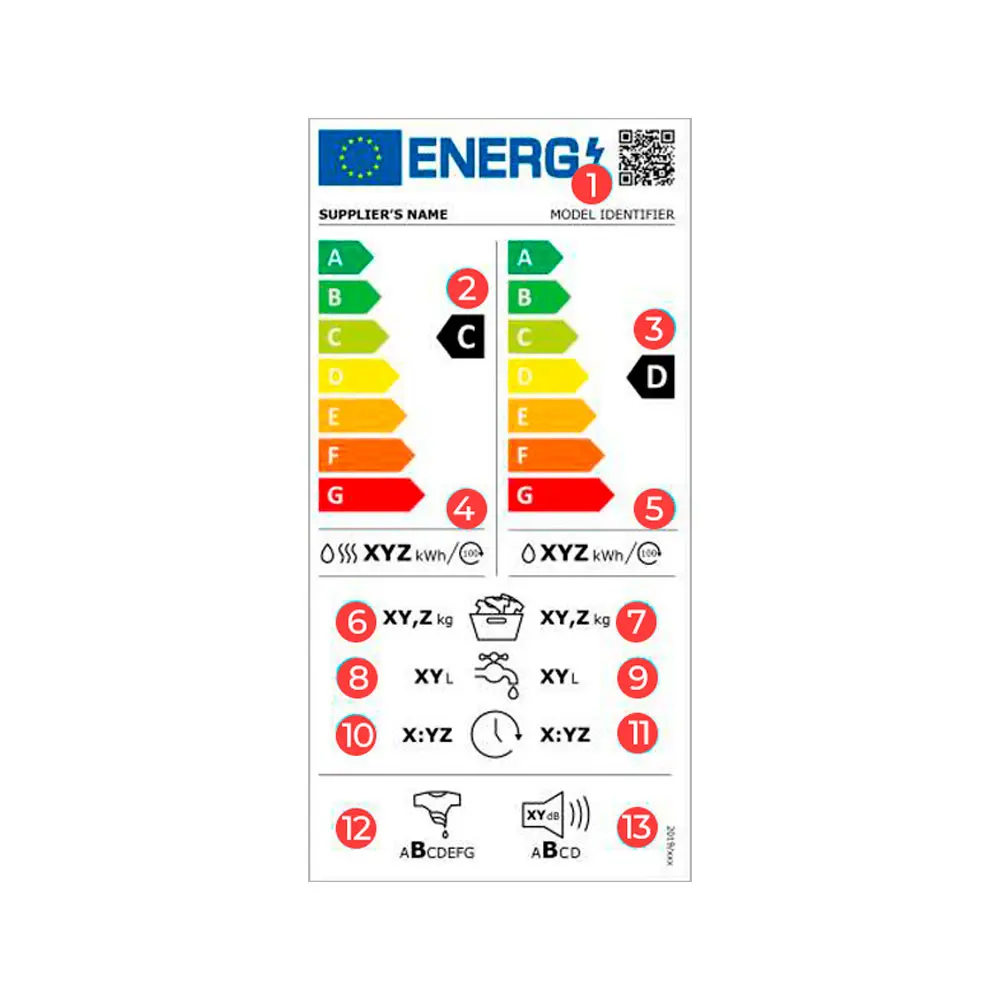
The energy labels for washer-dryers
Notes
QR code for information from the EU's EPREL database
Energy efficiency class for washing and drying based on the EEI WD (Energy Efficiency Index Washing Drying)
A) EEI 37 or less
B) EEI 45 or less
C) EEI 55 or less
D) EEI 67 or less
E) EEI 82 or less
F) EEI 100 or less
G) EEI greater than 100Energy efficiency class for washing only
Energy consumption in kWh for 100 wash and dry cycles
Energy consumption in kWh for 100 wash cycles
Maximum load capacity for washing and drying
Maximum load capacity for washing only
Water consumption per wash and dry cycle
Water consumption per wash cycle
Duration of a wash and dry cycle
Duration of a wash cycle with the "Eco 40-60" program
Spin efficiency class
Spin noise level in decibels and corresponding noise class
A) Less than 73 dB
B) Less than 77 dB
C) Less than 81 dB
D) 81 dB or more
The new energy labels
Details by category: Washing Machines | Washer-Dryers | Dishwashers | Refrigerators and Freezers | Wine Coolers | Televisions

Municipal Support for Home Appliances in Luxembourg
Planning to buy an energy-efficient home appliance?
Many municipalities in Luxembourg offer financial support to encourage the purchase of appliances rated A, B, or C under the new energy label system. These aids can reach up to €150 depending on your place of residence.
Visit our dedicated page to learn more about municipal support programs for home appliance purchases in Luxembourg, and check the available amounts and eligibility conditions in your area.
Updated on August 12, 2025
